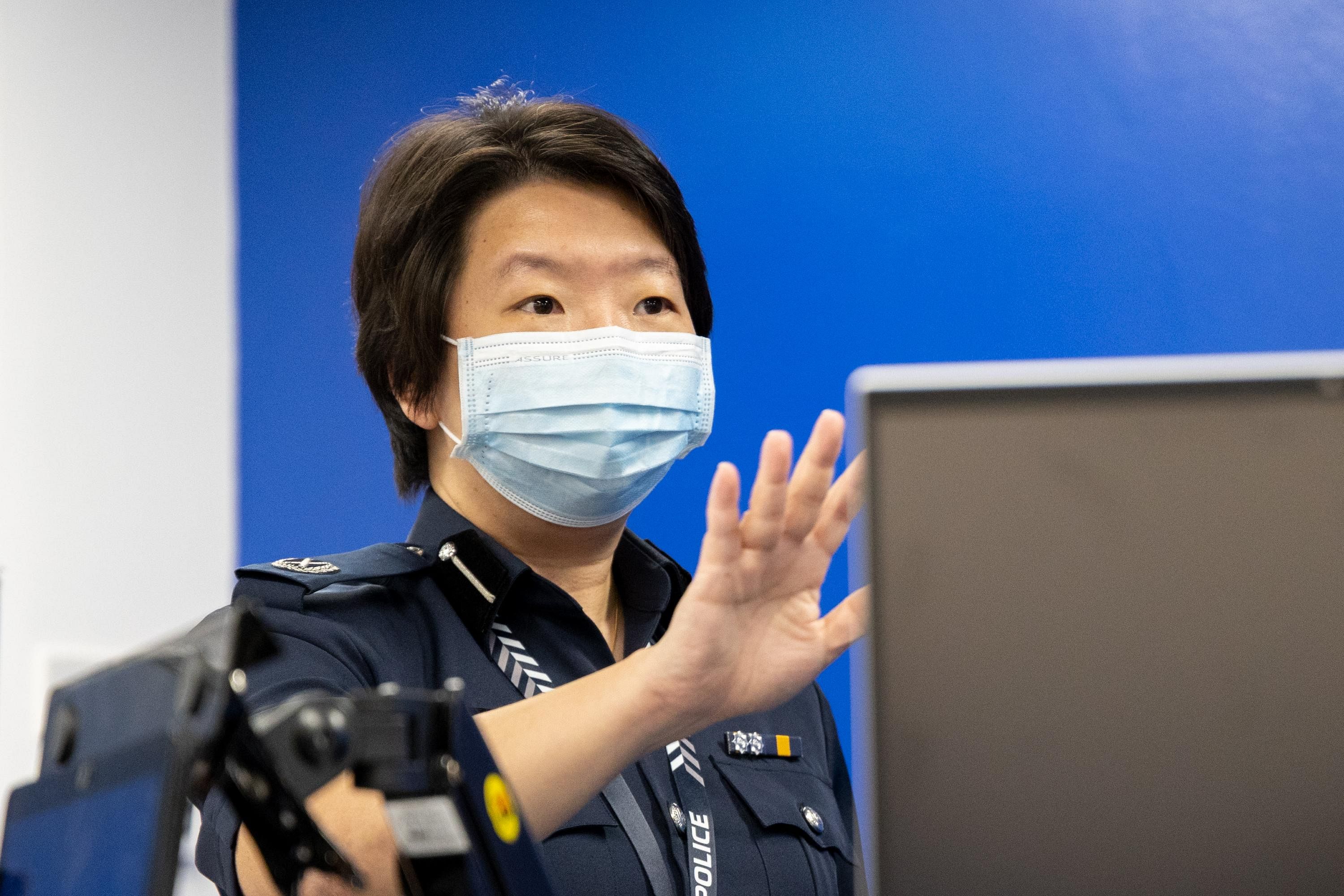Police's Anti-Scam Division busts 16 transnational syndicates
Sign up now: Get ST's newsletters delivered to your inbox

In 2019, the police set up the Anti-Scam Centre to centralise investigations into scam-related crimes, disrupt scammers' operations and help mitigate victims' losses.
PHOTO: ST FILE
Follow topic:
SINGAPORE - In just minutes, the money that victims transfer to a scammer will be quickly divided and dispersed to dozens of accounts in overseas banks.
As the scammers are also based outside Singapore in most instances, they can also withdraw the cash within hours, making recovery challenging.
"Once the money is out of Singapore, it will be very difficult for the police to recover the funds," said Deputy Assistant Commissioner Aileen Yap, assistant director of the Commercial Affairs Department's Anti-Scam Division.
Speaking to the media on Thursday (Jan 27), she said that while the police have built strong links with overseas law enforcement agencies, money transferred out of Singapore is as good as gone.
"While we have built strong links with overseas law enforcement agencies, recovery can still be very challenging because different jurisdictions have different legislation," she added.
In the recent case involving OCBC Bank customers, a couple related to The Straits Times how it took only 30 minutes for scammers to pilfer about $120,000 of their savings in a phishing scam.
At least 469 people lost a total of $8.5 million in the scam, but the bank later provided customers with "goodwill payments".
DAC Yap said it is possible to claw back some of the funds if the monies are still in Singapore. But the odds diminish with each passing minute.
In 2019, the police set up the Anti-Scam Centre to centralise investigations into scam-related crimes, disrupt scammers' operations and help mitigate victims' losses.
Working with other stakeholders like banks, the police were able to claw back more than $160 million of the $700 million scammers took from victims in Singapore. They also froze more than 24,000 bank accounts believed to have been used by scammers.
Fund recovery has been a key task for the centre's officers, but with the increasing number of scams, DAC Yap said this has proven extremely challenging.
She said officers have had to work round the clock and make many personal sacrifices. This happened recently on Boxing Day last year, when the centre received a surge of reports.
"The centre is operating 24/7, but that day almost all my officers were recalled to handle the sheer load," she said.

The centre comes under the Anti-Scam Division, which was set up last year amid a continued rise in scam cases year-on-year. The division is part of the Commercial Affairs Department.
DAC Yap added: "They were recalled away from their families and plans so that we could help recover as much funds as possible. It is really not an easy job."
She said scammers are often part of organised syndicates that operate overseas and under the radar, making it almost impossible to track them down.
Last year, the police embarked on Project Icons (International Cooperation On Negating Scams) to deal with the problem.
This project focuses on intensive intelligence-sharing with overseas law enforcement agencies, she said.
Through protracted collaboration, 16 transnational syndicates were successfully busted and 230 syndicate members arrested.
"This is unprecedented and can be considered as a very big breakthrough," she said. She credited the strong partnership with overseas agencies including the Commercial Crime Investigation Department of the Royal Malaysia Police.
DAC Yap, who has been in the force for 21 years, urged members of the public to play their part to fight scams.
Those who suspect they are victims of scams must immediately alert the bank and lodge a police report.
“Fighting scams is a whole of community effort,” she said.
“Your vigilance is our first line of defence.”


